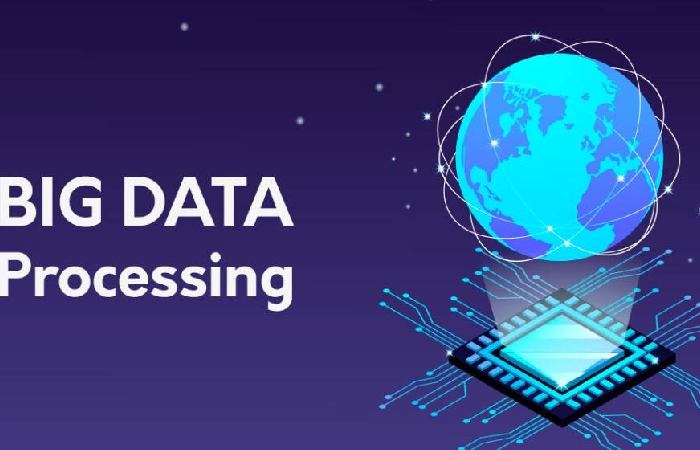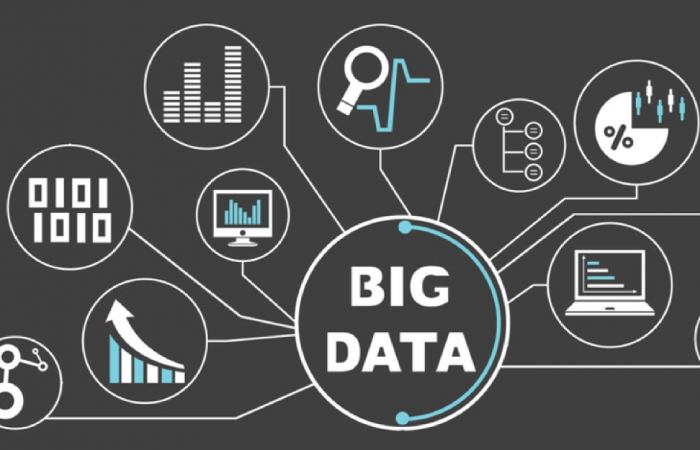Big Data Indoglobenews.Co.Id – Big data is a term that describes massive data sets that are so large and complex that traditional data processing tools cannot handle them. These data sets can include structured, semi-structured, and unstructured data, from social media posts and sensor readings to financial transactions and blogs.
Table of Contents
The Three Versus Big Data

To better understand the definition of big data, let’s talk about the three verses: volume, velocity, and diversity.
Volume
It refers to the enormous amount of data that remains generated every day. Think about the billions of Google searches, the millions of Facebook updates, and the countless emails sent every minute. However, this data accumulates, creating massive data sets that can remain analyzed to gain valuable insights.
The Speed is
on the speed at which data remains generated, collected, and analyzed. With the advent of real-time data streaming, IoT devices, and social media, data is constantly being developed and must be processed quickly to extract valuable insights.
Variety Refers
to the different types of data that make up giant data sets. It includes structured data, such as numbers and text in databases; semi-structured data, such as JSON files; and unstructured data, such as images, videos, and audio files.
Benefits of Big Data

Improve Decision Making
Companies can discover patterns, trends, and correlations by analyzing big data to help them make more informed decisions. It leads to better strategies, greater efficiency, and competitive advantage in the market.
Improved Customer Experiences
Big data allows companies to understand their customers’ needs and preferences better. By analyzing customer data, companies can deliver personalized experiences, improve products and services, and ultimately improve customer satisfaction.
Increase Operational Efficiency
Big data can help companies improve their operations by identifying bottlenecks, inefficiencies, and automation opportunities. However, this translates into cost savings, increased productivity, and better resource allocation.
Big Data Technologies

- Data storage and management.
- Hadoop
Hadoop is an open-source framework that enables distributed storage and processing of large data sets across groups of computers. It is highly scalable, fault-tolerant, and can handle many data types.
NoSQL Databases
NoSQL databases remain designed to handle unstructured and semi-structured data, making them well-suited for storing big data. Examples include MongoDB, Cassandra, and Couchbase. However, these databases provide flexibility, scalability, and high performance when dealing with large data sets.
Data Processing And Analysis.
Apache Spark: Apache Spark is an open-source distributed computing platform for fast and flexible data processing. It is often used with Hadoop to accelerate data processing tasks and can handle various workloads, including machine learning and graphics processing.
Machine learning algorithms: Artificial intelligence and artificial intelligence (AI) are essential in extensive data analysis. They can automatically recognize patterns and trends in massive data sets, make predictions, and even generate insights that humans might miss.
Big Data Challenges
Data privacy and security
As we collect and store more data, privacy and security concerns become more important. Companies must ensure that sensitive data remains protected from unauthorized access and complies with data protection regulations, such as the General and Consumer Privacy Protection Law.
Data Quality And Integrity
With so much data coming from different sources, ensuring data quality and merging it into a coherent data set can be challenging. Additionally, companies must implement robust data cleansing and integration processes to ensure accurate analytics and insights.
Scalability and Infrastructure
As the definition of big data grows, the need for scalable and reliable infrastructure becomes paramount. However, companies must invest in cutting-edge technologies, such as cloud computing and distributed systems, to address the growing demands for ample data storage and processing.
Big Data In Real World Applications
Health Care
In the healthcare sector, the definition of big data is transforming the way diseases remain diagnosed, treated, and prevented. However, by analyzing large amounts of patient data, medical professionals can identify patterns, predict outcomes, and develop personalized treatment plans.
Selling By Pieces
Retailers use big data to optimize prices, manage inventory, and create targeted marketing campaigns. By analyzing customer behavior, retailers can deliver personalized experiences and recommendations that drive sales and customer loyalty.
Finance
In the financial sector, big data remains used to detect fraudulent transactions, assess risks, and make investment decisions. Financial institutions can make data-driven decisions that increase profitability and reduce risk by analyzing market trends.
Conclusion
Big data revolutionizes our lives and work, providing businesses with invaluable insights and growth opportunities. Additionally, by understanding the definition, benefits, and challenges of big data, we can harness its power to drive innovation, improve decision-making, and create a more connected world. However, Big data review indoglobenews.co.id.
Also Read: Top Rates 5 Best Accounting Software In World Swissjava.Com


